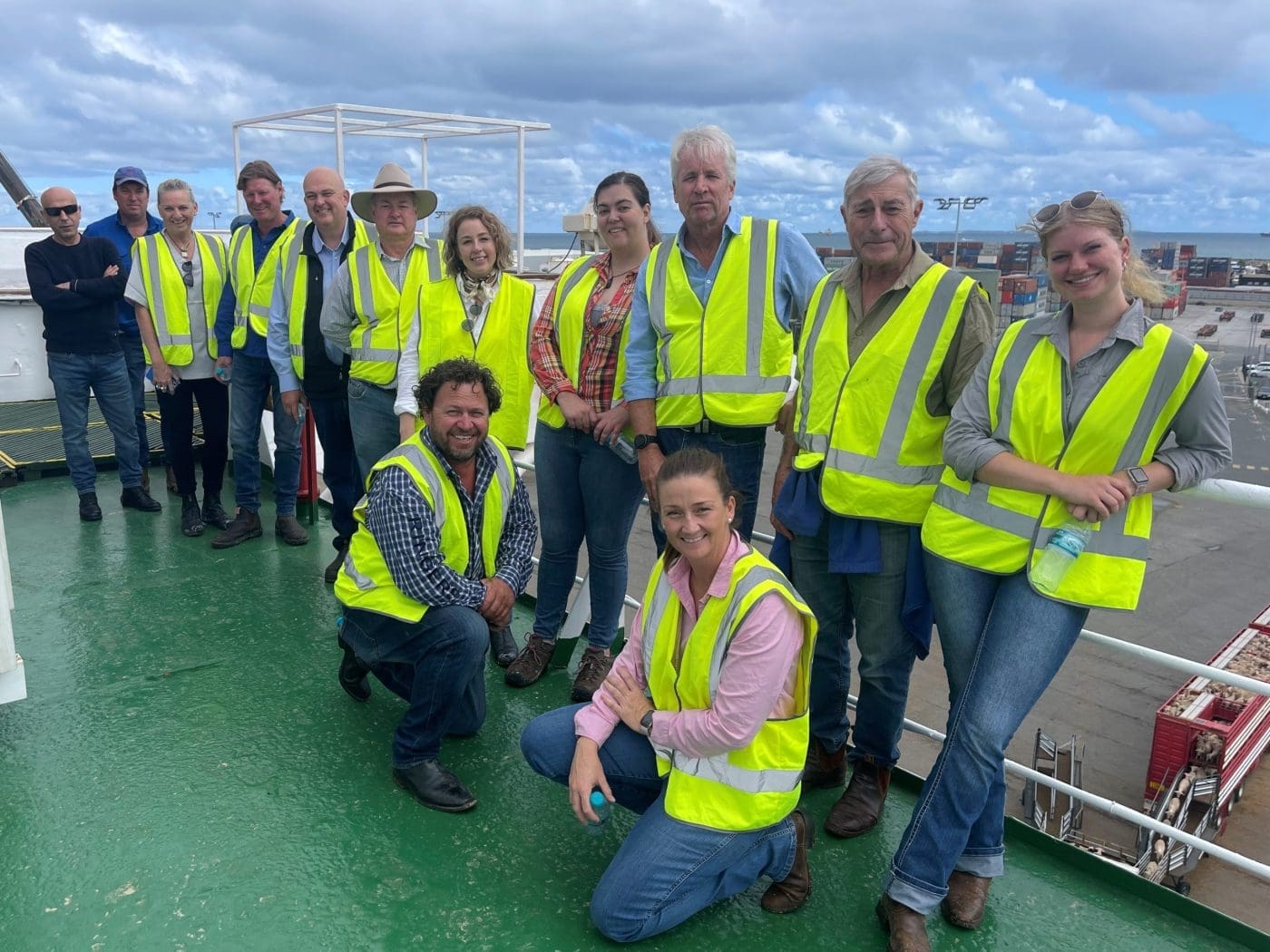Australian cattle and sheep industry leaders have voiced their support for the livestock export trade during a shipboard tour of a vessel in Western Australia this week.
The tour, organised by The Livestock Collective at Fremantle Port this week, was attended by representatives of WAFarmers, Sheep Producers Australia and Cattle Australia.
The group saw changes to conditions on board vessels, including improved ventilation and increased pen space, and discussed the range of animal welfare indicators that are being developed and used by industry covering animal behaviours, management, and environment.
Recent analysis of the trade has reinforced the important role it plays, supporting over 10,000 jobs across Australia, contrributing an average of $2 billion in export earnings annually to the Australian economy, and providing protein to millions of people around the world.
Of the more than 100 countries that export livestock, Australia is the only country that regulates international animal welfare standards from the paddock to the point of processing.
Cattle Australia chair David Foote described livestock exports as a crucial trade for Australian cattle and sheep producers.
“Live exports provide producers with important additional market opportunities and supports the domestic sheep and cattle markets by helping to maintain market competition,” he said.
Also on the tour, WA Farmers livestock president Geoff Pearson said the initiative help to demonstrate how the live sheep and cattle industries work well side by side and uphold the highest standards of animal welfare.
“A strong live export market allows producers to specialise and produce sheep tailored to the market and correspondingly attract premium returns for their product,” Mr Pearson said.
“Live exports puts competition into the market, adding competition to domestic demand and supporting farm gate returns whether it’s sheep or cattle – one aspect of live export can’t be stopped as it will be detrimental to the other.”
Sheep Producers Australia chair Andrew Spencer said that as well as providing a living for many Western Australians, the trade supports many businesses, including feed suppliers, transport companies, veterinarians, exporters, and livestock agents.
“These businesses have either emerged to support the livestock export industry or have grown in response to it and are largely dependent on the trade for their business.”
Veterinarian Holly Ludeman, managing director of The Livestock Collective, said that live export was a gateway to the world.
“My role in compliance in an industry that has an unwavering commitment to improve animal welfare outcomes means that I can collaboratively have an influence in global standards and that is something I am really proud of.”
Source: Sheep Producers Australia


The fifth paragraph of this report says it all, so I say to the Australian cattle and sheep industry representatives who, as reported above, voiced their support for the livestock export trade, well done, but you are fighting ideology and not common sense or logic. In such circumstances, attack is the best form of defence. Ideology is blind, and there are none so blind as those who will not see. Preventing the entire export industry from being shut down will require considerable (but reasonable) aggression, determination and courage, and sooner rather than later. Anyone who thinks this is exaggeration should explore the policy history of the current mainland state and federal governments (plus their environmental party colleagues) in this regard.
Please keep putting this to the public so that it is recognised as a professional business. Not what is portrayed by emotive self interested groups who don’t seem to care about the welfare of the stock that will replace those no longer coming from Australia.